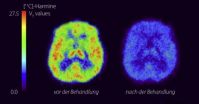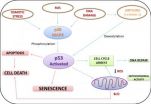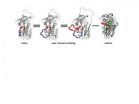(Press-News.org) July 31, 2014 – Controlled application of vacuum pressure is a promising approach to limiting tissue damage after traumatic brain injury (TBI), suggests an experimental study in the August issue of Neurosurgery, official journal of the Congress of Neurological Surgeons. The journal is published by Lippincott Williams & Wilkins, a part of Wolters Kluwer Health.
"Mechanical tissue resuscitation"—consisting of vacuum pressure applied over the injured area of the brain—shows promise as a safe and effective treatment for TBI, according to the research report by Dr. Louis C. Argenta and Dr. Michael Morykwas and co investigators of Wake Forest University of Health Sciences, Winston-Salem, N.C. However, the technique needs further development before it can be studied in humans with TBI.
Could Vacuum Pressure Mitigate Damage after TBI?
In the study, which was funded by a major grant from the U.S. Army, the researchers tested the mechanical tissue resuscitation approach by inducing localized TBI in swine, then applying negative pressure—that is, a mild vacuum—over the injured area of the brain. The study evaluated the effects of different levels of pressure, 50 or 100 millimeters of mercury (mm Hg); different application times, three or five days; and different delay times, up to six hours.
The results showed important benefits of applying vacuum pressure after brain injury. Applying 100 mm Hg of pressure for three days led to a significantly smaller area of brain contusion and reduced bleeding, compared to no pressure or 50 mm Hg of pressure. Brain MRI scans showed a more-normal appearance in vacuum-treated animals, which was confirmed by later examination of the brain tissues.
All animals survived after five days of vacuum application, whereas half of animals died when treatment was stopped after three days. The response to vacuum pressure was about the same when treatment was delayed for three hours, compared to no delay. The procedure appeared safe, without the development of seizures or brain deformation.
Traumatic brain injury is a devastating problem, with high rates of death and disability and limited treatment options. Following TBI, impaired circulation and accumulation of metabolites and water in the area of injury lead to progressive secondary injury and neuronal (brain cell) degeneration.
The new technique evolved from the successful use of negative pressure to promote healing in other types of wounds. In previous studies, Drs. Argenta and Morykwas and colleagues found benefits of controlled vacuum application to localized areas of TBI in rats. In the new study, they sought to evaluate the safety and effectiveness of this mechanical tissue resuscitation technique in a large-animal model more similar to the human brain with TBI.
"The ability of mechanical tissue resuscitation to achieve meaningful reduction in loss of brain tissue and hemorrhage injury warrants further investigation," the researchers conclude. It's unclear exactly how mechanical tissue resuscitation might work to reduce the area of tissue damage after TBI—it may act by increasing blood flow to the injured tissue, thus promoting oxygenation, nutrient supply, and removal of waste products.
Since the effects of vacuum treatment are "purely mechanical," it might be useful in combination with other treatments, Drs. Argenta and Morykwas and coauthors believe. They're performing further studies to optimize the mechanical tissue resuscitation technique before initial trials in human patients with TBI.
INFORMATION:
Click here to read "Mechanical Tissue Resuscitation at the Site of Traumatic Brain Injuries Reduces the Volume of Injury and Hemorrhage in a Swine Model."
About Neurosurgery
Neurosurgery, the Official Journal of the Congress of Neurological Surgeons, is your most complete window to the contemporary field of neurosurgery. Members of the Congress and non-member subscribers receive 3,000 pages per year packed with the very latest science, technology, and medicine, not to mention full-text online access to the world's most complete, up-to-the-minute neurosurgery resource. For professionals aware of the rapid pace of developments in the field, Neurosurgery is nothing short of indispensable.
About Wolters Kluwer Health
Wolters Kluwer Health is a leading global provider of information, business intelligence and point-of-care solutions for the healthcare industry. Serving more than 150 countries worldwide, clinicians rely on Wolters Kluwer Health's market leading information-enabled tools and software solutions throughout their professional careers from training to research to practice. Major brands include Health Language®, Lexicomp®, Lippincott Williams & Wilkins, Medicom®, Medknow, Ovid®, Pharmacy OneSource®, ProVation® Medical and UpToDate®.
Wolters Kluwer Health is part of Wolters Kluwer, a market-leading global information services company. Wolters Kluwer had 2013 annual revenues of €3.6 billion ($4.7 billion), employs approximately 19,000 people worldwide, and maintains operations in over 40 countries across Europe, North America, Asia Pacific, and Latin America. Follow our official Twitter handle: @WKHealth.
Vacuum treatment may limit damage after traumatic brain injury
'Mechanical tissue resuscitation' reduces tissue injury and bleeding in animal model, reports study in Neurosurgery
2014-07-31
ELSE PRESS RELEASES FROM THIS DATE:
UT Dallas study reveals effect of loud noises on brain
2014-07-31
Prolonged exposure to loud noise alters how the brain processes speech, potentially increasing the difficulty in distinguishing speech sounds, according to neuroscientists at The University of Texas at Dallas.
In a paper published this week in Ear and Hearing, researchers demonstrated for the first time how noise-induced hearing loss affects the brain's recognition of speech sounds.
Noise-induced hearing loss (NIHL) reaches all corners of the population, affecting an estimated 15 percent of Americans between the ages of 20 and 69, according to the National Institute ...
Monoamine oxidase A: Biomarker for postpartum depression
2014-07-31
This news release is available in German.
Many women suffer from baby blues after giving birth. Some even develop full-blown postpartum depression in the weeks that follow. Monoamine oxidase A, an enzyme responsible for the breakdown of neurotransmitters like dopamine and serotonin, plays an important role in this condition. In comparison to healthy women, women who experience postpartum depression present strongly elevated levels of the enzyme in their brains. This was discovered by a Canadian-German research team including Julia Sacher from the Max Planck Institute ...
Research reveals pervasive implicit hierarchies for race, religion, and age
2014-07-31
As much as social equality is advocated in the United States, a new study suggests that besides evaluating their own race and religion most favorably, people share implicit hierarchies for racial, religious, and age groups that may be different from their conscious, explicit attitudes and values.
The study findings appear in Psychological Science, a journal of the Association for Psychological Science.
"People from relatively low-status groups can readily report that their group does not have the most power. At the same time, most groups, even if they have less social ...
Key to aging immune system is discovered
2014-07-31
There's a good reason people over 60 are not donor candidates for bone marrow transplantation. The immune system ages and weakens with time, making the elderly prone to life-threatening infection and other maladies, and a UC San Francisco research team now has discovered a reason why.
"We have found the cellular mechanism responsible for the inability of blood-forming cells to maintain blood production over time in an old organism, and have identified molecular defects that could be restored for rejuvenation therapies," said Emmanuelle Passegué, PhD, a professor of medicine ...
Researchers at SGH and Duke-NUS a step closer to finding treatment for dengue fever
2014-07-31
There have been several news reports that the world's first dengue vaccine will be available next year. However, the latest clinical trials show that the vaccine only provides a protection of around 50 per cent for DENV-2 and DENV-1, which are commonly found in Singapore.
DENV-1 accounts for 90 per cent of infections locally as a large population lacks the immunity against this particular dengue virus serotype. Until a vaccine that can offer higher protection becomes available, it is crucial to find a suitable treatment for dengue fever, as there is presently none available ...
Senescence in adipose-derived stem cells and its implications in nerve regeneration
2014-07-31
Adult mesenchymal stem cells, specifically adipose-derived stem cells have self-renewal and multiple differentiation potentials and have shown to be the ideal candidate for therapeutic applications in regenerative medicine, particularly in peripheral nerve regeneration. Adipose-derived stem cells are easily harvested, although they may show the effects of aging, hence their potential in nerve repair may be limited by cellular senescence or donor age. Cellular senescence is a complex process whereby stem cells grow old as consequence of intrinsic events (e.g., DNA damage) ...
A new way to generate insulin-producing cells in Type 1 diabetes
2014-07-31
VIDEO:
Researchers discover a simple peptide that can induce new beta-cell formation in the pancreas. The findings show promise for a new approach to treating Type 1 diabetes.
Click here for more information.
La Jolla, Calif., July 31, 2014 -- A new study by researchers at Sanford-Burnham Medical Research Institute (Sanford-Burnham) has found that a peptide called caerulein can convert existing cells in the pancreas into those cells destroyed in type 1 diabetes-insulin-producing ...
Researchers uncover cause of gum disease related to type 2 diabetes
2014-07-31
Going to the dentist isn't fun for anyone, but for those with periodontal disease related to type 2 diabetes, a new research discovery may have them smiling. In a report appearing in the August 2014 issue of the Journal of Leukocyte Biology, one of the most important blood cells involved in the human immune response, B cells, are shown to promote inflammation and bone loss in type 2 diabetes-associated periodontal disease. These findings support the idea that treatments that manipulate the responses of B cells may treat or prevent this complication.
"Our study identified ...
Breakthrough in understanding of important blood protein
2014-07-31
The human body contains a unique protein that has the unusual property of destroying itself after a few hours of existence - it must therefore be continually recreated and is no stable protein. The protein, called PAI-1, affects many physiological functions, including the dissolving of coagulated blood. If you get a blood clot, it is due to the fact that the a clot has accumulated in a blood vessel, and therefore PAI-1 is extremely important – for the human body's survival in general and for helping people with a blood clot or other blood diseases in which coagulation plays ...
Common drugs adversely impair older adults' physical as well as cognitive functioning
2014-07-31
INDIANAPOLIS -- A class of medications previously linked to cognitive impairment in older adults also appears to negatively affect their physical functioning according to investigators from the Regenstrief Institute, the Indiana University Center for Aging Research, the University of East Anglia and several other United Kingdom institutions.
In a systemic review of more than a decade of studies on the effects of drugs with anticholinergic properties, they report that these drugs have a significant adverse effect on both cognitive and physical functioning, including the ...
LAST 30 PRESS RELEASES:
Fossil amber reveals the secret lives of Cretaceous ants
Predicting extreme rainfall through novel spatial modeling
The Lancet: First-ever in-utero stem cell therapy for fetal spina bifida repair is safe, study finds
Nanoplastics can interact with Salmonella to affect food safety, study shows
Eric Moore, M.D., elected to Mayo Clinic Board of Trustees
NYU named “research powerhouse” in new analysis
New polymer materials may offer breakthrough solution for hard-to-remove PFAS in water
Biochar can either curb or boost greenhouse gas emissions depending on soil conditions, new study finds
Nanobiochar emerges as a next generation solution for cleaner water, healthier soils, and resilient ecosystems
Study finds more parents saying ‘No’ to vitamin K, putting babies’ brains at risk
Scientists develop new gut health measure that tracks disease
Rice gene discovery could cut fertiliser use while protecting yields
Jumping ‘DNA parasites’ linked to early stages of tumour formation
Ultra-sensitive CAR T cells provide potential strategy to treat solid tumors
Early Neanderthal-Human interbreeding was strongly sex biased
North American bird declines are widespread and accelerating in agricultural hotspots
Researchers recommend strategies for improved genetic privacy legislation
How birds achieve sweet success
More sensitive cell therapy may be a HIT against solid cancers
Scientists map how aging reshapes cells across the entire mammalian body
Hotspots of accelerated bird decline linked to agricultural activity
How ancient attraction shaped the human genome
NJIT faculty named Senior Members of the National Academy of Inventors
App aids substance use recovery in vulnerable populations
College students nationwide received lifesaving education on sudden cardiac death
Oak Ridge National Laboratory launches the Next-Generation Data Centers Institute
Improved short-term sea level change predictions with better AI training
UAlbany researchers develop new laser technique to test mRNA-based therapeutics
New water-treatment system removes nitrogen, phosphorus from farm tile drainage
Major Canadian study finds strong link between cannabis, anxiety and depression
[Press-News.org] Vacuum treatment may limit damage after traumatic brain injury'Mechanical tissue resuscitation' reduces tissue injury and bleeding in animal model, reports study in Neurosurgery





